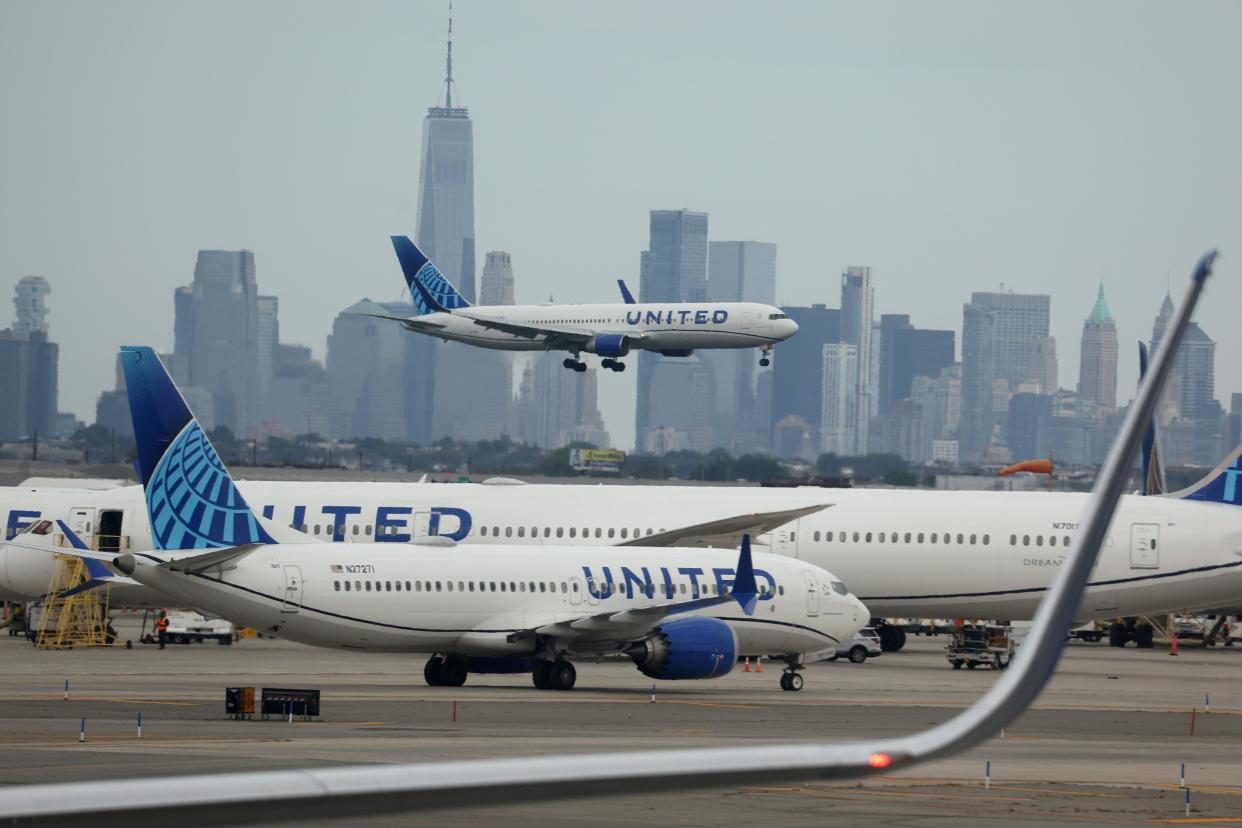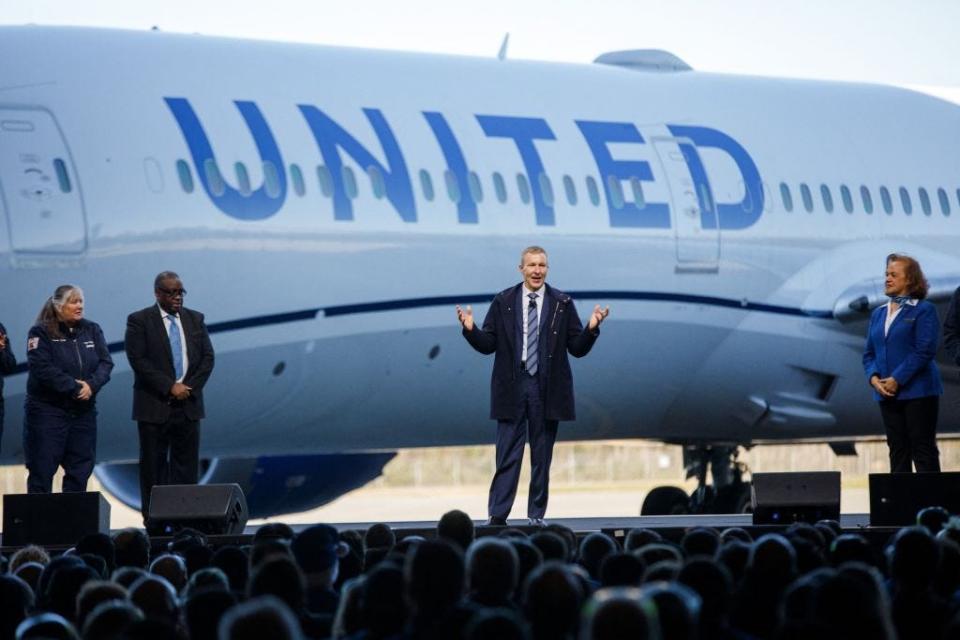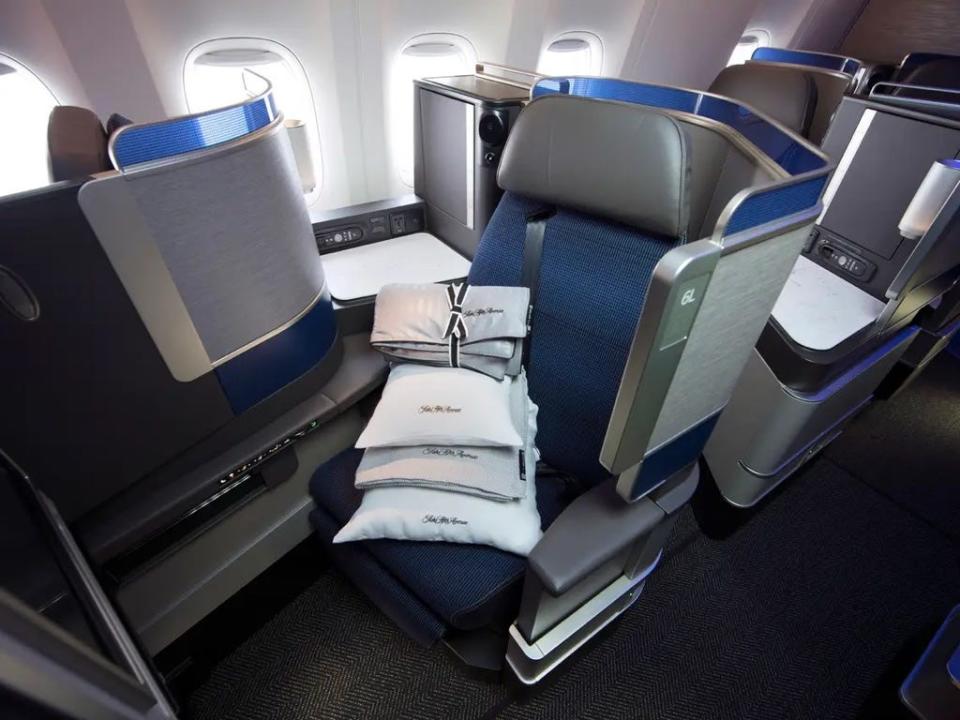Airlines are scrambling to fix the unsustainable crisis caused by too many cheap flights

- Oops!Something went wrong.Please try again later.
An influx of cheap economy-class seats hitting that market in recent months has depressed airfares.
This has weighed down airline earnings despite strong demand for flights.
Airlines are cutting seat capacity and leaning on premium cabins to improve financial performance.
It may not feel like it, but there are a lot of cheap flights to be had this summer — and the influx of low-priced, often money-losing economy seats has airlines scrambling.
"The unprofitable capacity is just not sustainable," United Airlines' chief commercial officer Andrew Nocella told investors Thursday.
Despite reporting a 23% increase in second-quarter profits over the prior year, United's earnings guidance for the upcoming third quarter fell short of Wall Street expectations.
"This is a quarter where industry capacity growth has exceeded still solid demand," CEO Scott Kirby said on the earnings call.
In recent months, airlines have flooded the market with economy-class seats, leading to lower airfares as carriers cut prices to fill their planes as travel demand soars.

According to the Bureau of Labor Statistics, average ticket prices in June were the cheapest in 15 years, excluding the COVID-19 pandemic years of 2020 and 2021. And in July, TSA screenings hit a record.
But as labor, fuel and other overhead costs remain high, airlines — especially low-cost carriers — have sold seats at a loss in a desperate attempt to generate as much revenue as possible.
"The pressure other US airlines are experiencing today is due in large part to their unprofitable flying in many domestic markets," Kirby said.
Nocella added: "In the past, the magnitude of the worst flying has never been this bad for the lower-margin airlines," the United CCO said.
Low-cost airlines are bearing the brunt of the pain
Delta CEO Ed Bastian also questioned the long-term financial viability of the business strategy of low-cost carriers during the airline's earnings call last week.
"You cannot, if you are on the lower end of the industry's food chain, continue to post losses, particularly given the health of the demand set we've seen over these last couple of years," Bastian said. The carrier kicked off a series of bad news for airlines earlier in June, posting disappointing earnings that sent the entire sector down.

Southwest Airlines, for example, lost $231 million in the first quarter of 2024, while fellow low-cost carriers Spirit and Frontier lost $143 million and $26 million, respectively, during that same period.
The most effective and direct method of addressing this issue for airlines is to slow the introduction of additional seats for sale. Something airlines are quickly working to do.
"It was inevitable that carriers would begin to cancel this unprofitable flying, and you see that happening in earnest in the second half of August," Kirby said, echoing similar projections by Delta.
Based on upcoming flight schedules, Kirby said the airline expects domestic capacity growth across the industry to decrease by 5% by the fourth quarter of 2024.

In addition to capacity reduction, the US mainline carriers are leaning on their premium, higher-margin cabins to help cover the losses.
United reported an 8.5% revenue increase during the second quarter from its premium cabins, such as Polaris business class and domestic first class.
Delta is also banking on its premium cabins, which accounted for 56% of its second-quarter revenue.
In addition, Alaska Airlines announced this week that it's retrofitting its Boeing 737 fleet to add 1.3 million first-class and premium economy seats annually. The retrofit starts in September and will ensure that each Alaska Boeing 737 has 16 first-class and 30 premium economy seats.
American Airlines will report its second-quarter performance on July 25.
Read the original article on Business Insider

